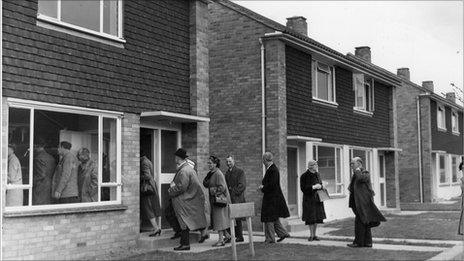The social housing tenants miles from home
- Published
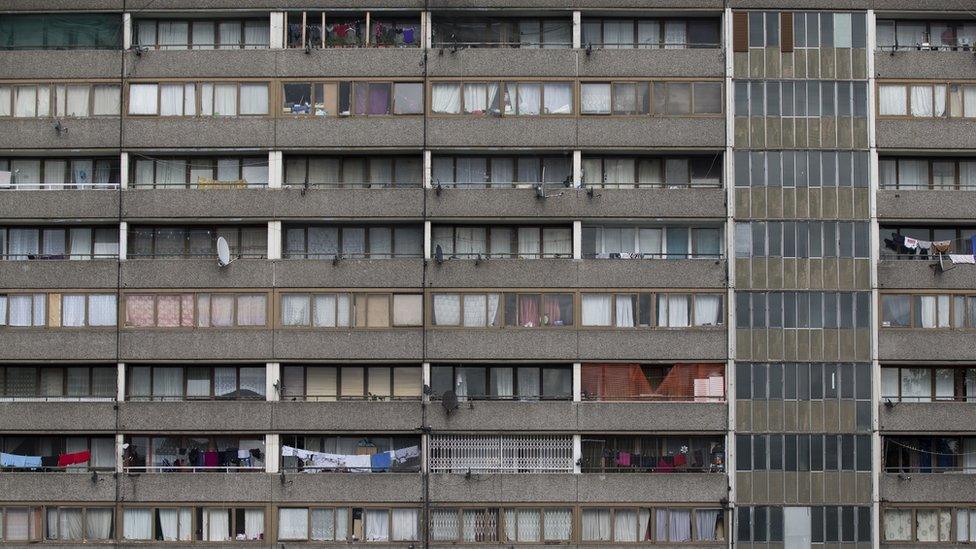
Councils in London are facing a shortage of social housing
Councils, particularly those in London, are choosing to tackle a shortage of affordable social housing by investing in accommodation in other parts of the country. But what is life like for the tenants who are forced to live miles from home?
"I didn't have a choice in the matter - I had to move here, or be homeless," Lavonn Grant explains to the BBC's Victoria Derbyshire programme, distraught at her present situation.
In June, she says, Redbridge Council in London left her with little option but to move 60 miles away to Canterbury in Kent, with her one-year-old daughter, in order to retain social housing.
She had been living in a studio flat in Redbridge Foyer in Ilford, a building used by the council to house homeless young people under the age of 22, but was given an eviction notice, along with its other residents - in April.
She says she asked to be housed in a local hostel or bed and breakfast, but was told none was available, leaving a move to Kent the only viable option.
Her property there is located in a former army barracks, with homes for 147 families, which Redbridge Council has recently begun to lease.
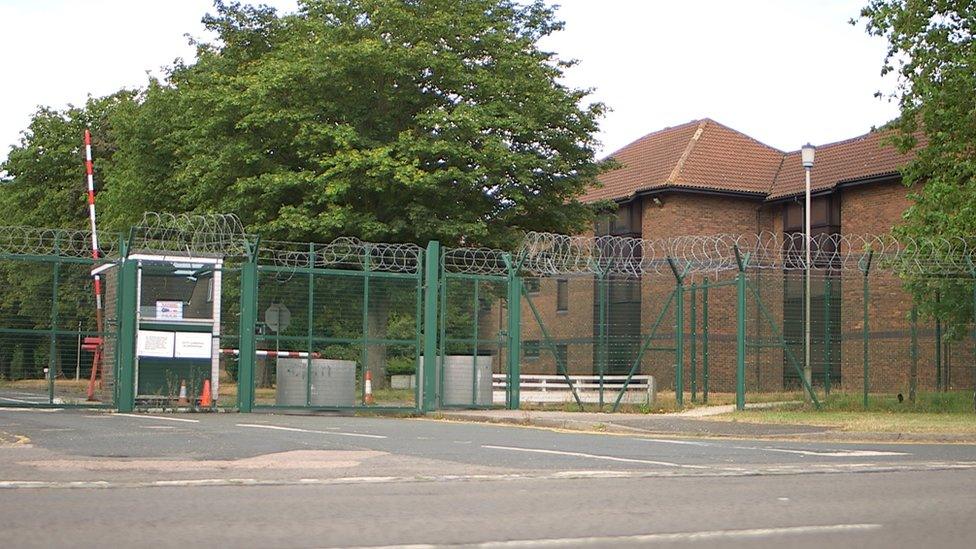
Howe Barracks in Canterbury will house 147 families
The main advantage for the local authority is that the cost of the accommodation is far lower than property in the capital - lessening its need to dip into funds to support housing benefit tenants.
But Lavonn says the move has left her without a vital support network - her family.
"It's been really hard in Kent on my own, without my family. I feel so far from them and it's really hard bringing up my daughter without any support, emotionally or financially."
Before moving, she was able to work, but says her current situation does not allow for this.
"I'm currently unemployed as I don't have anyone to look after my daughter - so I can't go out to work."
Roger Harding, director of policy and campaigns at the charity Shelter, says Lavonn's situation is one his organisation hears "all too often", with families "forced to wave goodbye not only to their home, but to schools, jobs, friends and family. We know the devastating impact this has on their lives".
"Tearing a family from their local area should always be the last resort," he adds, "but overstretched council resources and a lack of affordable homes sometimes means it's the only option."
In a statement, Redbridge Council said: "The chronic shortage of affordable housing is a London-wide issue and due to the pressure in the housing market, it has become increasingly difficult for us to secure enough local supply.
"The housing at Howe Barracks in Canterbury can provide homes to 147 families who had previously been living in temporary accommodation."

Find out more
The Victoria Derbyshire programme is broadcast on weekdays between 09:00 and 11:00 on BBC Two and the BBC News channel.

Lavonn has also encountered another issue. To lease the barracks, Redbridge Council outbid the local Canterbury City Council, which has caused animosity from the local public.
"Since arriving here, I've faced a backlash from people on the waiting list for properties in Canterbury. I feel bad for those people too - I didn't know we were taking their properties."
Local resident James McCrossan has set up a petition against Redbridge Council's leasing of the former barracks.
He says he does not hold a grudge against the individuals who have been moved from London, but the system that allowed the properties to be sold "commercially".

James McCrossan believes Redbridge's lease is unfair on those in Canterbury
The leasing, he says, "aids and helps residents of London, but it doesn't help the housing crisis in Canterbury.
"The [growing] population in Canterbury is becoming more and more of a problem, and bringing more people in means schools, hospitals and local amenities can't cope."
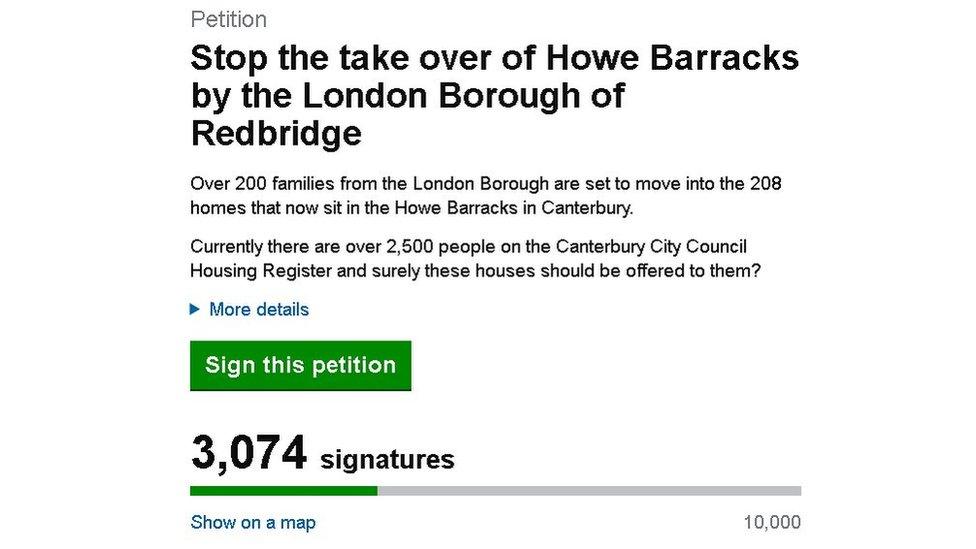
The petition to stop the lease of Howe Barracks in Canterbury reached 3,000 signatures
Redbridge Council, however, is far from alone in seeking accommodation further afield - especially among London councils that are struggling against the capital's housing market.
A Freedom of Information request in September 2015 showed 26 of 33 London councils moved homeless households to other parts of the South East of England.
Eight councils moved people into temporary accommodation in the Midlands and the north of England, the figures showed.
Not everyone, however, is unhappy with this development.
'It's beautiful'
Gayle Oschman, who has a progressive form of multiple sclerosis (MS), had been living in a one-room bed and breakfast in Redbridge with her son for four months before she was given the opportunity to move to Canterbury.
"I was traumatised [by the conditions of the old accommodation]. Here, you can breathe," she explains.
"It's beautiful, all I see is greenery," she says, looking towards her garden.
The property comes with its own bathroom and kitchen - a luxury not afforded to her in the bed and breakfast.
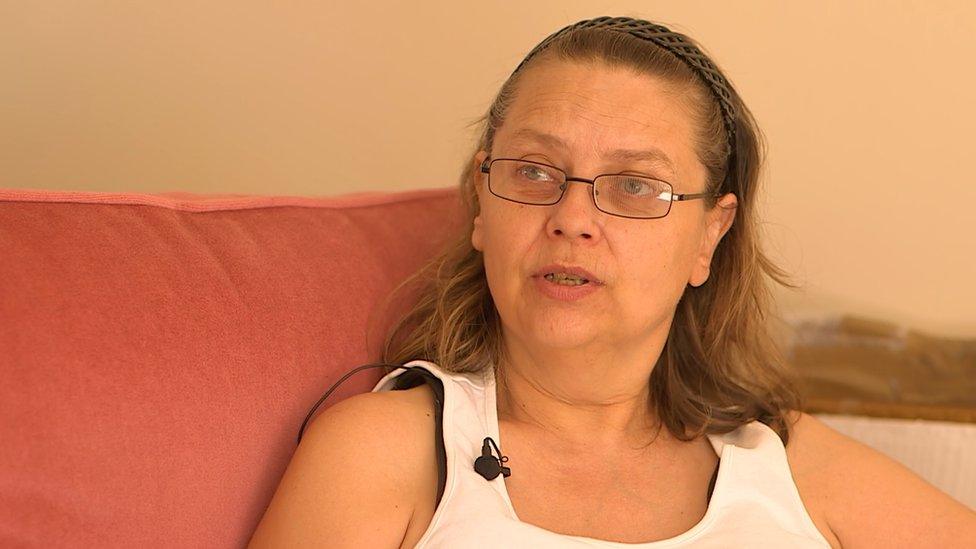
Gayle Oschman is glad she made the move to Canterbury
Her move caused a personal dilemma, as she had to leave behind her mother in London, who has cancer.
But, she says, Redbridge Council told her another such opportunity might not arise for five years - leaving her with the overwhelming feeling that she "had to jump" and make the move. She says she hasn't regretted it since.
Lavonn, however, is desperate to return to London.
"I'm thinking of saving up and renting privately in London, even though I know I probably can't afford it - but what other option do I have?"
- Published24 March 2016
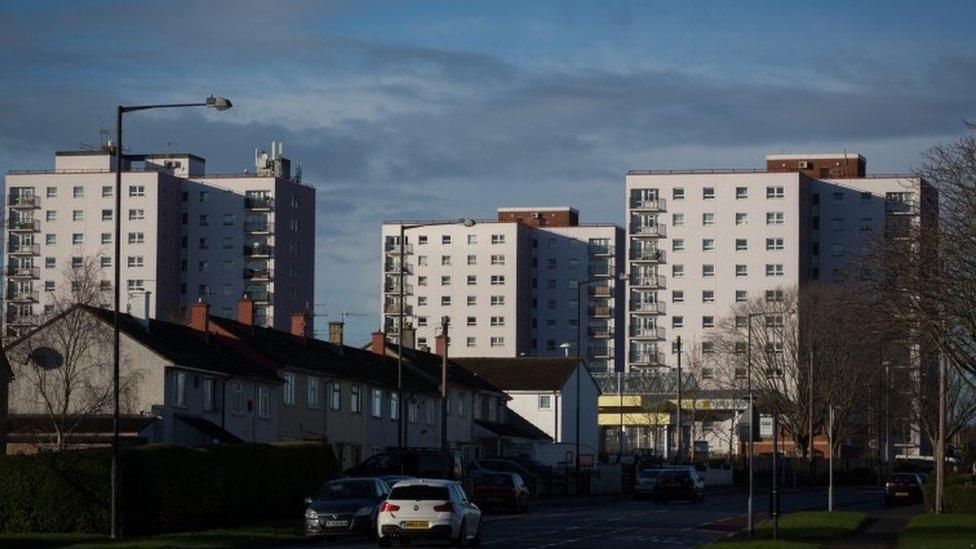
- Published14 April 2015
